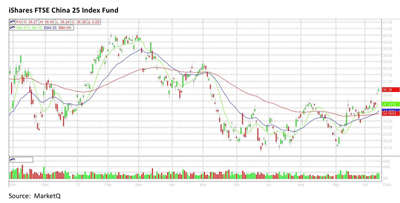“Losses?!”
by Jeffrey Saut, Chief Investment Strategist, Raymond James
October 15, 2012
Most people acknowledge that losses will happen regardless of the type of business venture. A light bulb manufacturer knows that two out of three hundred bulbs will break. A fruit dealer knows that two out of one hundred apples will rot. Losses per se don’t bother them; unexpected losses and losing on balance does. Acknowledging that losses are part of business is one thing; taking and accepting those losses in the markets is something else entirely. In the markets, people tend to have difficulty actively (as opposed to passively as in the case of the fruit dealer and the bulb manufacturer) taking losses (i.e., accepting and controlling losses so that the business venture itself doesn’t become a loser). This is because all losses are treated as failure; in every other area of our lives, the word loss has negative connotations. People tend to regard the words loss, wrong, bad, and failure as the same, and win, right, good and success as the same. For instance, we lose points for wrong answers on tests in school. Likewise, when we lose money in the market we think we must have been wrong.
... “What I Leaned Losing a Million Dollars,” by Jim Paul and Brendan Moynihan
What determines your stock market performance is not how you manage your winners, but how you manage your losers. Indeed, everyone knows how to win, but few know how to lose! Yet the secret to making money in the market is knowing how to lose; or how to control your losses. Listen to the pros:
“I’m always thinking about losing money as opposed to making money. Don’t focus on making money; focus on protecting what you have.” – Paul Tudor Jones
“The majority of unskilled investors stubbornly hold onto their losses when the losses are small and reasonable. They could get out cheaply, but being emotionally involved and human, they keep waiting and hoping until their loss gets much bigger and costs them dearly.” – William O’Neil
One investor’s two rules of investing:
1) Never Lose Money
2) Never forget rule No. 1 – Warren Buffett
All of those pros have different market philosophies. They have contradictory strategies for making money. Some are traders; some are value players; some are growth-stock advocates; others are emerging-growth seekers; etc., etc., etc. But the message is clear – “Learning how not to lose money is more important than learning how to make money!”
Last week “losing” came back in focus on the Street of Dreams as all three of the major market indices posted their largest weekly declines since the first week of June. Of the three, the NASDAQ Composite (COMP/4457.86) fared the worst with a 2.94% “hit,” while the S&P 500 (SPX/1428.59) suffered a 2.21% slide and the D-J Industrials (INDU/13328.85) lost 2.07%. Why such paltry declines have caused a massive return to “fear” in the stock market is a mystery to me because such market pullbacks are pretty common. Indeed, according to Ned Davis Research, since 1928 there have been 294 “dips” in the SPX of 5% or more. Ninety four of them were moderate corrections of 10% or more, 43 were severe declines of 15% or greater, and 25 of them were classified as bear markets (20%+). Further, since the SPX has not experienced as much as a 5% fade in 93 trading sessions, the third-longest such stint since 2002, one is certainly due. In fact, we warned of such in mid-September in a report titled, “The Philosophy of Tops.” Since then the major indices have struggled.
Sticking with the technicals, the SPX and INDU have pulled back to their respective 50-day moving averages and are holding them. Unfortunately, the COMP has decisively broken below its 50-DMA (read: negative). The COMP’s weakness is attributable to the heavy weighting of technology stocks that populate the index. Because the technology sector has the largest weighting (20%) of the 10 macro sectors, with only 29% of the tech stocks above their 50-DMAs is it any wonder the overall stock market is struggling? Plainly the tech sector is having issues, probably because the tech stocks have the most exposure to Euroquake. The tech trauma has left that sector pretty oversold and likely within 3-5% of a bottom. Part of tech’s problem has been the weakness in Apple (AAPL/$629.71/Outperform), which has also decisively broken below its 50-DMA; yet, as the brainy folks at the Bespoke organization note:
“As shown (see chart on page 3), breaks below the 50-day have historically not been bad for Apple. Typically the stock bounces back pretty quickly. In the month following 50-day breaks, AAPL has averaged a gain of 1.84% (median 3.05%). Over the next three months, AAPL has averaged a gain of 9.29% (median 8.31%).”
Meanwhile, as our markets struggle the major European markets are holding up rather well despite the Euroquake worries. In last week’s letter I wrote, “When markets ignore bad news, that’s good news.” Said quote applies to markets abroad, as well as here. In past missives I have suggested one on the better ways to increase international equity exposure is using the MFS International Diversification Fund (MDIDX/$13.69), managed by my friend Thomas Melendez, who I will be “breaking bread” with later this week. Also, in last week’s verbal strategy comments I opined that China is looking attractive again. In fact, the iShares FTSE China 25 Index Fund (FXI/$36.38) is up about 14% since the beginning of September and last week accomplished another upside breakout in the charts (see chart on page 3).
Turning to the economy, despite my sense that corporate America has stepped to the sidelines until there is more clarity on the Presidential election and the fiscal cliff with a resultant softening in economic statistics, of the nine economic indicators released last week seven came in above expectations. Offsetting that are earnings expectations because for every one company announcing they expect better than anticipated profits, there were more than four companies warning about their upcoming 3Q12 earnings. This week will get a tidal wave of earnings reports, as well as some significant economic reports (Retail Sales, CPI, Industrial Production, Philly Fed, Leading Economic Indicators, Existing Home Sales, etc.). Accordingly, it will be interesting this week if the SPX will hold in the 1420 – 1430 zone, or if we will fall to the major support zone of 1400 – 1420.
In conclusion, in last Monday’s missive I suggested one of the better ways to gain exposure to the financials was via the FBR SmallCap Financial fund (FBRSX/$19.36) managed by my friend David Ellison. That statement caused a number of requests for individual stocks favorably rated by our fundamental analysts. Screening our research universe for such names that are under $10 per share produced these names: Bank America (BAC/$9.12/Strong Buy); Huntington Bancshares (HBAN/$6.93/Strong Buy); and KeyCorp (KEY/$8.33/Outperform).
The call for this week: Last week the COMP broke below its 50-DMA, but the INDU and SPX did not, potentially setting the stage for downside non-confirmation. Moreover, it was a pretty strange week. Take Thursday’s action, most of the major averages were flat to down for the session, but advancing stocks beat declining stocks by a ratio of 2-to-1! Still, the mood on Wall Street has deteriorated, as confirmed by Friday’s high CBOE Put/Call Ratio. So, while the universal spin is that the stock market has made a major top, the pullback has produced a fairly oversold and extremely pessimistic condition. Meanwhile, there remains a full load of internal energy to power stocks higher as long as 1390 on the SPX is not breached. Clearly, I don’t believe that will happen.
P.S. – I am recording this Sunday because I will be in Michigan all week speaking at conferences and seeing accounts.

Click here to enlarge

Click here to enlarge
Copyright © Raymond James








